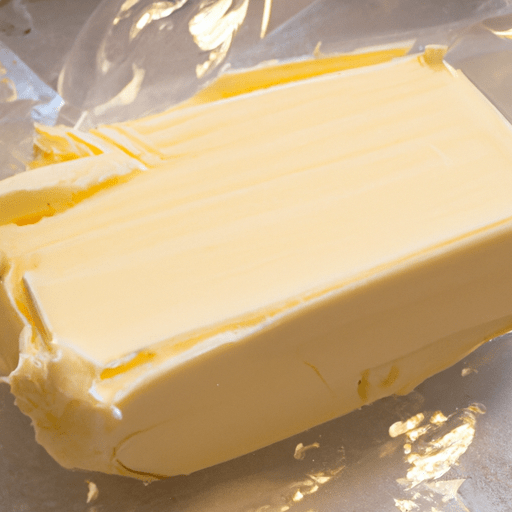The Luscious Wonder of Salted Butter
Butter is a staple ingredient that adds richness and flavor to a wide range of dishes. One variation of this delightful ingredient that deserves special attention is salted butter. In this article, we’ll delve into the world of salted butter, exploring its taste, common uses in cooking, nutritional value, and a few fascinating tidbits from its history.
Taste that Tickles Your Taste Buds
Salted butter, as the name suggests, is simply butter that has been blended with salt. This combination creates a tantalizing dance between the smooth and creamy richness of butter and the subtle, savory kick of salt. The salt enhances the natural flavors of the butter, adding depth and complexity to every bite.
Versatility in the Kitchen
Salted butter, with its delicate balance of saltiness and creaminess, is a versatile ingredient that can elevate both sweet and savory dishes. Its ability to enhance flavors makes it an excellent choice for spreading on freshly baked bread, enhancing the taste of pancakes or waffles, or simply slathering on a warm muffin.
In cooking, salted butter is often used as a flavorful base for sautéing vegetables, searing meats, or pan-frying fish. It lends a heavenly taste to mashed potatoes, pasta sauces, and creamy soups. Baking enthusiasts also appreciate salted butter for its ability to bring out the richness of cookies, cakes, and pastries.
Nutritional Value and Health Considerations
Salted butter, like unsalted butter, is primarily composed of milk fat. It contains essential vitamins such as vitamin A, D, E, and K, which are fat-soluble vitamins necessary for our overall well-being. Additionally, salted butter is a good source of healthy saturated fats, which provide a source of energy for the body.
However, it’s important to consume salted butter in moderation due to its high saturated fat content. While saturated fats are essential for our health, excessive consumption can contribute to heart-related issues. As always, it’s best to maintain a balanced and varied diet.
A Historical Journey
Butter has been a beloved ingredient for centuries, with salted butter having its place in the annals of culinary history. Salted butter was traditionally made to preserve butter during times when refrigeration was limited. The salt acted as a natural preservative, extending the shelf life of the butter and preventing spoilage.
Interestingly, the preference for salted butter varies across different regions of the world. In some countries, like France, salted butter is commonly used. In contrast, other countries, such as the United States, tend to favor unsalted butter in both cooking and baking.
Final Thoughts
Salted butter is an extraordinary ingredient that can transform ordinary dishes into something truly exceptional. Its harmonious blend of creaminess and saltiness adds depth and richness to a wide variety of recipes. Whether you’re spreading it on warm bread or using it to sauté vegetables, salted butter is a culinary delight that has stood the test of time.
So next time you’re in the kitchen, don’t forget to reach for a tub of salted butter. Let its magic unfold and elevate your cooking to new heights.
Origin and Common Uses:
- Salted butter is believed to have originated in ancient times when people discovered that adding salt helped to preserve the butter and extend its shelf life.
- It has been used in various culinary traditions around the world for centuries and is an essential ingredient in many recipes.
- Salted butter is typically used in baking, cooking, and as a spread on bread or toast.
- It is often chosen for its slightly savory flavor and the way its salt content balances the natural sweetness of desserts.
Nutritional Benefits:
- Salted butter is a good source of fat-soluble vitamins such as vitamin A, vitamin D, vitamin E, and vitamin K.
- It also contains trace amounts of several minerals, including calcium, phosphorus, and potassium.
- Butter, including salted butter, can be a source of healthy saturated fats, but it is important to consume it in moderation as part of a balanced diet.
Unique Properties and Historical Significance:
- Salted butter has a longer shelf life compared to unsalted butter due to the presence of salt, which acts as a natural preservative and inhibits bacterial growth.
- Traditionally, salted butter was commonly used to help preserve butter during times when refrigeration was not readily available.
- In some cultures, salted butter has historical and cultural significance. For example, in Brittany, France, salted butter has been crafted since ancient times and is a cornerstone of the region’s culinary heritage.
- The salt content in different brands and regions can vary, ranging from very lightly salted to more intensely salty.
- Individuals with dietary restrictions or health concerns relating to sodium intake might opt for unsalted butter as a lower-sodium alternative.




Use the share button below if you liked it.
It makes me smile, when I see it.